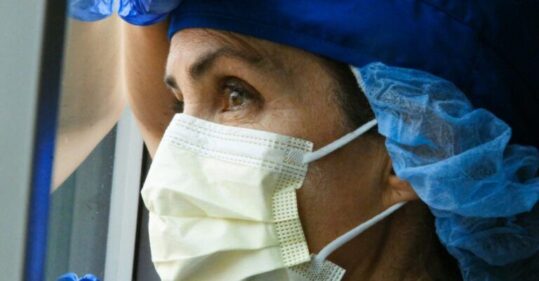RCN calls for ‘urgent progress’ on recognising long Covid as occupational disease

The Royal College of Nursing (RCN) and British Medical Association (BMA) have called on the government to make ‘urgent’ progress on recognising long Covid as an occupational disease and provide more support for nurses and doctors affected.
It has been a year since the Industrial Injuries Advisory Council (IIAC) found ‘robust evidence’ for five conditions from complications of Covid-19 infection that should be prescribed as an occupational disease for health and social care workers, the RCN and BMA said in a joint statement.
Yet to date there has been no response to the report from the government around classing the conditions as an occupational disease.
The long Covid conditions listed by the IIAC were:
Related Article: New preceptorship package for social care nurses
- persisting pneumonitis or lung fibrosis following acute Covid-19 pneumonitis
- persisting pulmonary hypertension caused by a pulmonary embolism developing between three days before and 90 days after a diagnosis of Covid-19
- ischaemic stroke within 28 days of a Covid-19 diagnosis;
- myocardial infarction within 28 days of a Covid-19 diagnosis;
- symptoms of post intensive care syndrome following ventilatory support treatment for Covid-19
Designating these as an occupational disease as recommended by the IIAC, would mean healthcare staff could receive specific financial assistance in recognition that they had, more than likely, caught the initial infection at work, the unions said.
It would mark a ‘significant first step’ towards recognising long Covid, and the broader range of symptoms it includes, as an occupational disease in health and social care workers, the statement added.
In a letter to the secretary of state for work and pensions, the unions urged him to act on the paper’s recommendations.
They point out that more than 50 countries worldwide already provide formal legal recognition for key workers who contracted Covid-19 after exposure in the workplace, and offer corresponding compensation and support schemes.
Professor Nicola Ranger, RCN chief nurse, commented: ‘Nursing staff tell us their lives have been forever changed by long Covid.
‘Its physical impact coupled with long-term financial insecurity is causing them continued worry.’
She added: ‘They have been doubly let down by this government – which first failed to provide adequate protection against a deadly virus and subsequently left thousands unsupported whilst facing the often-debilitating consequences of Long Covid.
“Ministers have had a year to act and are now falling behind other countries who have given formal legal recognition to long Covid as an industrial disease.’
Related Article: Applications to study nursing in England at ‘new low’
The government is understood to be carrying out a detailed assessment of the IIAC recommendations.
A government spokesperson said: ‘We recognise that long Covid has debilitating impacts on people’s physical and mental health and are backing our world-leading scientists with over £50 million to better understand the long-term effects of this virus and make treatments available.
‘We continue to support the NHS workforce with sickness absence and NHS terms and conditions provide generous support for NHS staff with up to six months full pay and six months half pay, depending on length of service.
‘In total, we have invested £314m to establish specialist services throughout England to direct people experiencing long Covid into the right treatment and rehabilitation services, including occupational health services.’
Related Article: Paul Rees appointed as permanent NMC chief executive and registrar
A version of this article first appeared on our sister publication Pulse

See how our symptom tool can help you make better sense of patient presentations
Click here to search a symptom




